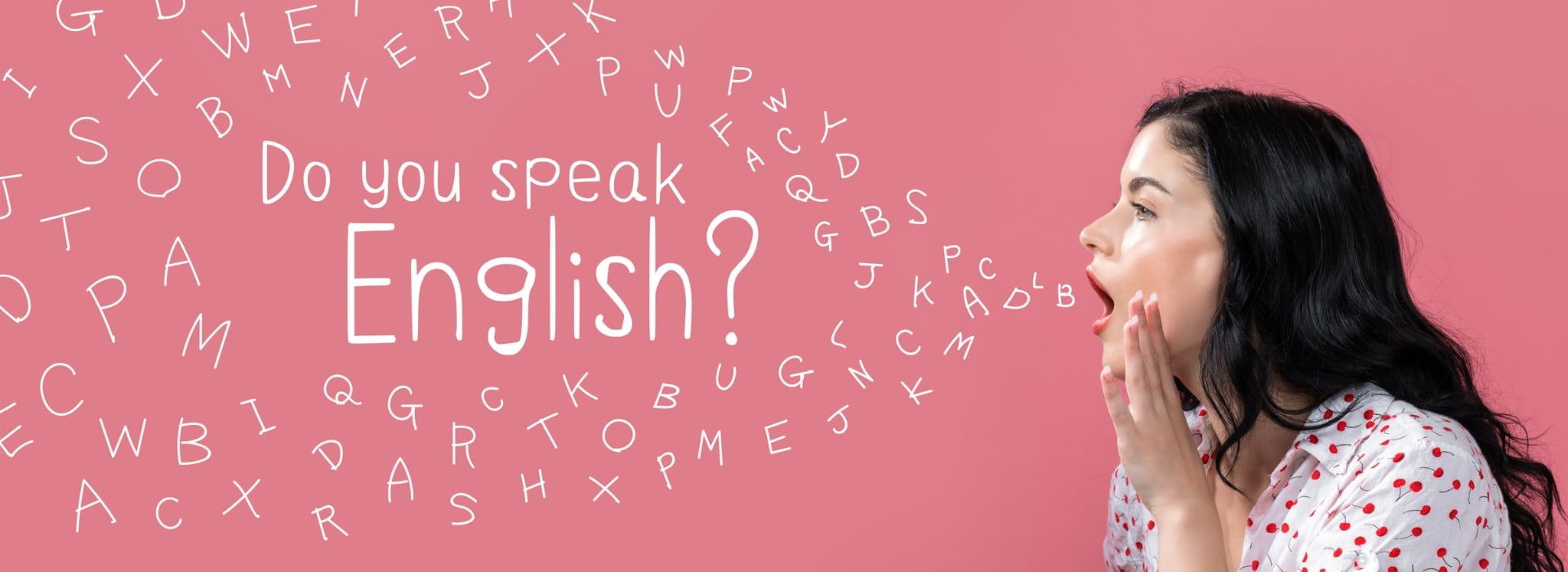Master Adverbs with Worksheets: Complete Guide to Types and Usage
Struggling with adverbs? Try Edulyte’s adverbs worksheets with answers to get a clear grip on all types of adverbs. Our worksheets provide easy exercises and examples, helping you improve your grammar skills in a straightforward way.
Download Free PDF Worksheet

What are Adverbs?
Adverbs are words that modify verbs, adjectives or even other adverbs used in a sentence. They answer the questions like when? where? how? how much? how often?
Examples-
- Jane really likes ice cream.
- He briefly spoke with us before leaving for the airport.
- We should work extremely hard to get the desired results.
Here, the adverbs used are really, briefly, and extremely.
What are the different types of adverbs?
We generally classify adverbs into six parts-
- Conjunctive Adverbs
- Sentence Adverbs
- Adverbs of time (frequency)
- Adverbs of place (direction)
- Adverbs of degree (how much)
- Adverb of Manner (how)

Conjunctive Adverbs
Conjunctive Adverbs are used to link two independent clauses. These are also called connectors. These include- nonetheless, consequently, however, etc.
Examples-
- Suzan was unwell; consequently, she could not finish her work.
- He studied hard; however, he could not score well on the test.
Sentence Adverbs
Sentence Adverbs are adverbs used at the beginning of the sentence. They modify the whole sentence. These include- apparently, certainly, definitely, basically, normally, actually, hopefully, etc.
Examples-
- Apparently, many guests fell sick after the party.
- Certainly, you can work hard to achieve your goals.
- Hopefully, our project will qualify for the next level.
Adverbs of time (frequency)
Adverbs of time (frequency) depict the time/ frequency of the action in that particular sentence. These include- always, frequently, eventually, occasionally, once, seldom, never, often etc
Examples-
- We visit the park quite often for a morning walk.
- Johnson goes to the nearby gym frequently.
- We bake bread at home occasionally.
Adverbs of place (direction)
Adverbs of place (direction) talk about the place and direction of the action in that particular sentence. These include- across, over, under, backward, upstairs, sideways etc.
Examples-
- I went through the door of that building.
- She was very tired; hence she was resting upstairs.
- The cat plays in the garden near our building.
Adverbs of degree (how much)
Adverbs of degree depict the importance, degree or level of action performed in that sentence. These include completely, nearly, hardly, thoroughly, somewhat, entirely etc.
Examples-
- I have thoroughly enjoyed reading this book.
- He hardly cooks anything for her family members.
- The results are entirely different from what we expected.
Adverb of Manner (how)
Adverb of Manner depicts the manner, approach or process of action in that particular sentence. These include carefully, thankfully, quickly, resentfully, nicely, equally etc.
Examples-
- The father divided the cake equally among all the children.
- We should handle fragile objects carefully.
- A tortoise moves slowly as compared to a hare.
Practice Exercise
Fill in the blanks using suitable forms of adverbs. For reference, words are given in parenthesis ().
- She was __ dressed in her sparkling red dress. (beautifully, slowly)
- Thomas visits Africa and Korea __. (soon, often)
- We can rely on her __ as she is trustworthy. (quickly, completely)
- The storm was quite intense; __ the crops were damaged. (consequently, however)
- Jerry is indisciplined, and he is __ late for school. (none, always)
- He kept some old newspapers __ the shelf. (down, over)
- Some people know how to express their thoughts __ . (well, less)
- The chef prepared an exotic dish __ for the guests. (often, quickly)
- I __ agree with you. Your suggestion is appropriate.(entirely, nonetheless)
- The prices of essential goods have been rising; __ it is unlikely that they will continue to rise. (apparently, however)
Answers–
- beautifully
- often
- completely
- consequently
- always
- over
- well
- quickly
- entirely
- however
Get your free personalised learning account today.
How to form adverbs from adjectives?
Most of the time, an adverb is formed by adding – ly to the adjectives.
Examples-
- quick becomes quickly
- slow becomes slowly
The sentences can be framed like this-
- Victoria ran quickly to catch the bus.
- Thomas walks very slowly as he is unwell.
Some points to remember-
1 If the adjective ends in –y, we add –ily.
Examples-
- easy becomes easily
- angry becomes angrily
- happy becomes happily
- lucky becomes luckily
The sentences can be framed like this-
- I can do this work easily.
- They lived happily after settling in a new city.
2 If the adjective ends in –able, -ible, we add –y in the end.
Examples-
- probable becomes probably
- terrible becomes terribly
The sentences can be framed like this-
- We can’t probably trust her words.
- The painting was terribly damaged after he threw water over it.
3 If the adjective ends in –ic, we add –ally in the end.
Examples-
- basic becomes basically
- tragic becomes tragically
- economic becomes economically
The sentences can be framed like this-
- The neighbouring country was tragically affected by floods.
- We need to design economically feasible strategies.
Practice Exercise
Fill in the blanks using suitable forms of adverbs. For reference, words are given in parenthesis ().
- She _ handled the glass jar. (careful)
- The dress was _ damaged from the ink stains. (horrible)
- The children played _ at the playground. (happy)
- The presentation was _ created by the employee. (beautiful)
- The patient looked _ at the doctor. (hopeful)
- That building was _ significant. (historic)
- I had an alternative plan to escape this situation. (lucky)
- Some celebrities behave with the media people. (angry)
- She is _ helpful as compared to her family members. (extreme)
- I was _ mad at him for ruining the plan. (absolute)
Answers–
- carefully
- horribly
- happily
- beautifully
- hopefully
- historically
- luckily
- angrily
- extremely
- absolutely
Some interesting questions related to Adverbs
Do adverbs always end in –ly?
Most of the adverbs end in –ly, however, this is not a thumb rule that is to be followed every time. Examples include- very, never, often, always, etc.
What are adverbs used for?
Adverbs modify verbs, clauses and even other adverbs in a particular sentence.
Examples-
- She quickly ran outside to check the source of the strange noise.
- He can easily cook any kind of cuisine.
Here, quickly and easily, tell about the approach to doing something.
How are adverbs used with verbs?
When used with verbs, adverbs give more information about them in terms of intensity, degree, time, place, etc.
Examples-
- Jane slowly called out to her child while he was sleeping on the couch.
- My friend carefully took the package and delivered it to the concerned person.
Here, the adverbs used are- slowly, carefully. They are used to give information about verbs.
Can we use adverbs with other adverbs?
Yes, we can use two adverbs in a sentence. The first adverb will give more information about the second.
Examples-
- The tiger runs very quickly when he sees his prey.
- Robin speaks really softly.
Practice Exercise
Rewrite the following sentences with the correct adverbs.
- He runs very fastly and has great stamina.
- The team players played very good which made them win.
- Rogen hard made any effort to compensate for his mistake.
- We need to have focus and dedication nonetheless we can’t succeed.
- She felt incredible miserable after that incident.
- Unfortunate, Jennifer could not win the match as she was unwell.
- Surprise, they could make it to the next level.
- He ease solved this difficult puzzle without anyone’s help.
- My mother gentle placed the glass vase on the table.
- The blue car got terrible damaged after the accident.
Answers–
- He runs very fast and has great stamina.
- The team players played very well which made them win.
- Rogen hardly made any effort to compensate for his mistake.
- We need to have focus and dedication otherwise we can’t succeed.
- She felt incredibly miserable after that incident.
- Unfortunately, Jennifer could not win the match as she got unwell.
- Surprisingly, they could make it to the next level.
- He easily solved this difficult puzzle without anyone’s help.
- My mother gently placed the glass vase on the table.
- The blue car got terribly damaged after the accident.
Practice Exercise
Make correct and complete sentences from the jumbled words given below.
- Is/ she/ shy/ somewhat/ it/ when/ to/ comes/ new/ meeting/ people
- Can/ we/ for/ go/ a/ quickly/ walk/ after/ dinner
- Looked/ Maria/ pretty/ extremely/ the/ at/ party/ yesterday
- Decided/ we/ have/ to/ the/ outside/ dinner
- Naughty/ the/ behaved/ kid/ badly/ everyone/ with
- Hannah/ both/ her/ and/ brother/ very/ tried/ hard/ could/ unfortunately/ not/ good/ score/ marks/they
- Can/ you/ this/ buy/ necklace/ it/ however/ is/ expensive/ quite/ pearl
- Employees/ the/ reluctantly/ the/ accepted/ new/ guidelines
- Visits/ she/ place/ this/ often
- Am/dinner/I/set/you/meanwhile/making/the/table/can
Answers–
- She is somewhat shy when it comes to meeting new people.
- We can go for a walk quickly after dinner.
- Maria looked extremely pretty at the party yesterday.
- We decided to have dinner outside.
- The naughty kid behaved badly with everyone.
- Both Hannah and her brother tried very hard; unfortunately, they could not score good marks.
- You can buy this pearl necklace; however, it is quite expensive.
- The employees reluctantly accepted the new guidelines.
- She visits this place often.
- I am making dinner; meanwhile you can set the table.
Conclusion
You may be looking for an adverb worksheet for class 3 or for class 5 or adverb worksheet with answer key for adults. In this adverbs worksheet you will find exercises for all levels.
Adverb Adventures: Boost Your English Skills!
Welcome to “Adverb Adventures,” where we dive into the world of adverbs to make your English sparkle! Ever wondered how to spice up your sentences and make your words dance?

Related Blogs & guides
Teaching tips, career guides, resources and much more!
Australian English Curriculum: Access its Important Highlights and Understand its Features
Format of how to write a letter : Get valuable tips and samples for letter writing
Phonetics for the Alphabet in English
Frequently Asked Questions
If you thought you had to run between classes to refine your English language skills, then let us assure you that learning English is not that demanding. Follow our fail-proof tips, and be an English pro without stepping into a physical class.
Immerse yourself in English
Surround yourself with English. Read English journals, newspapers, and blogs. Listen to English podcasts and news. Write down your daily tasks and your shopping list in English.
Find English Study Partners
The internet is a boon when it comes to learning English. Join any English learning communities, clubs and forums online. Interact with the members there and polish your English.
Set your goals
You can only become good at a skill by setting your targets. Plan your language learning. Be thorough with placing your goals in your plan. Refer to them every day to ensure you work to achieve them.
Join Edulyte’s English Classes
Offering highly personalised live classes on video calls for all aspects of the English language, Edulyte is a frontrunner in online education. You will find verified and qualified tutors who allow you to learn flexibly—no need to step out of your home. Just click here and start learning English in a stress-free manner with unlimited access to Edulyte’s resources!
If you have a class Beginner, you have a considerable challenge. Worksheets can be intimidating for Beginners as they need guidance regarding how to attempt the tasks.
As a mentor, always have a quick revision of the topics mentioned in the worksheet before you encourage your students to attempt them.
Explain the tasks in detail to the learners.
Assure them that they can complete the worksheet and that you will help them with it.
A question that every beginner wants an answer to but let us assure you that online claims of learning English in 15 hours or even a day are false! Language requires time and dedication to be acquired and mastered. Therefore, classes 3 times a week are an excellent start to your learning journey.
It is excellent that you wish to improve your language. However, we advise you to follow the above steps to master the language without signing up for physical classes. Why don’t you connect with us here and let us guide you about the right strategy to suit your learning requirements?
Not at all. Put your worries to rest. You can acquire the language and become confident in it by attending English classes and paying attention to the language every day. English can be an easy language to learn as:
gender does not influence the verbs and adjectives
there aren’t many forms of plurals
its phonetics is similar to a language that you are already comfortable with.
Grammar holds the language together; it is the foundation. How you frame your sentences and express your thoughts in English depends on the grammar. So yes, learning grammar is essential if you wish to excel in English.
Of course! We have trained tutors that personalise classes and cater to the specific needs of the learners. Check out the different English live classes we offer and find the one suitable for you at https://app.edulyte.com/classes/learn-english
It is a myth that offline classes are more effective than online classes. Online courses save you time and give you greater control over your learning. Why don’t you try our trial class to see for yourself!










